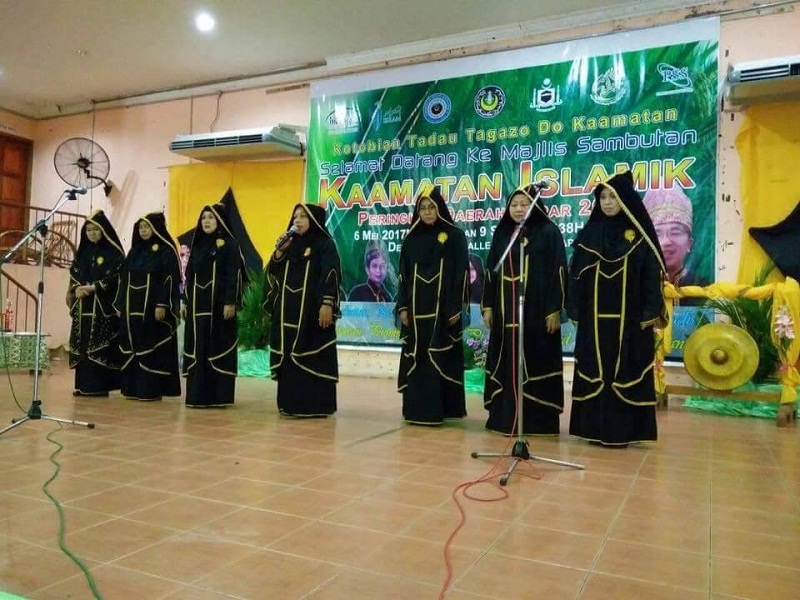KOTA KINABALU, May 8 — Criticised for linking Islam to a Kadazandusun cultural festival, the organiser of a controversial Kaamatan celebration here said today it had no ulterior motive in providing Muslims a Shariah-compliant alternative.
Nicholas Sylvester from the Hidayah Centre Foundation Sabah (HCF Sabah) which organised the “Kaamatan Islamik” programme in Papar over the weekend said he is aware of the public backlash and apologised for the confusion, saying that the group should have made its event objectives clearer from the start.
“We are happy to remove the word ‘Islamic’ if it causes too much distraction. It is not necessary, and we want a harmonious celebration. It is just a simple word, not a major issue,” he said in a statement to Malay Mail Online.
Sylvester, who is also protem chairman of the Momogun Muslim seMalaysia Federation, claimed there were hundreds of thousands of Muslim Sabahan natives who want to celebrate Kaamatan in a way that would not contravene their religious beliefs.
“They want to know what they can or cannot do, and yet want to stay as close to their culture as possible. So we celebrate accordingly, and maintain as much of the original practices according to the religious guidelines,” he told Malay Mail Online when contacted.
Sylvester also said HCF Sabah had been getting advice from the state mufti for past events without causing a fuss.
“We have been doing this for four to five years now, but usually on a small scale. Maybe it’s because it seems like we are doing suddenly, having it on a big scale, people don’t understand it and are shocked.
“It can be rather sensitive and we see that we should have addressed it,” he admitted.
Sylvester said that the events have five objectives: to celebrate Kaamatan harmonious and inclusively; to build and introduce an Muslim Momogun identity that is Shariah-compliant; to build a relationship with all the ethnic and religious communities in Sabah and Malaysia; to thank “Allah” for the rice harvest and other produce and business ventures; and to build a positive identity for Momogun Muslims.
“There is no ill intent or ulterior agenda in this event,” he stressed.
Sylvester said that the group will proceed with its Kaamatan programme as scheduled on May 13 in Penampang and Keningau, May 14 in Tamparuli, May 16 in Kudat, and the finale on May 20 and 21 in Kundasang.
A Facebook post said the event will “celebrate the harvest festival the Islamic way” with a worship of the rice spirits through a thanksgiving prayer in Dusun and Arabic, a “Momogun Muslim” beauty queen contest, community sports, ethnic prayers and ethnic islamic fashion show among others.
The event, which was posted on HCF Sabah’s Facebook page, did not get much attention until photos emerged on social media showing several women in a loose robe and headdress variation of the Kadazan gold and black costume with a banner with the words “Kaamatan Islamik” on it.
It garnered much attention from Internet users and Sabahans from all creeds who asserted that culture should not be intertwined with religion.
Many said that the event would only result in dividing the community with various religious versions of the Kaamatan festival in the future.
Kaamatan, a month-long celebration in May that culminates in a two day festival at the Kadazandusun Cultural Association building in Penampang, is the biggest celebration for the natives and is attended by people from all ethnics, races and religions.
The event features high priestesses known as bobohizans performing several traditional rituals to thank their gods, through pagan chants that dates back to their headhunting days.
Sabah, long a bastion for multiracial and multicultural harmony, has been courting religious controversies in recent years, from dubious mass conversions of their rural poor, inadvertent Islamisation due to the “bin” and “binti” in their names and having their Christian books and items seized by Customs officials.




















